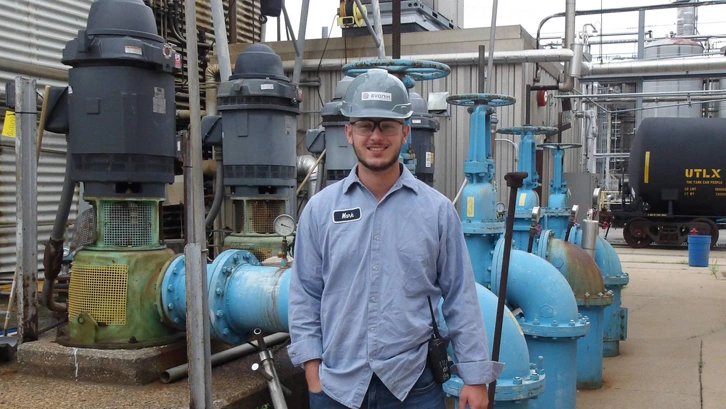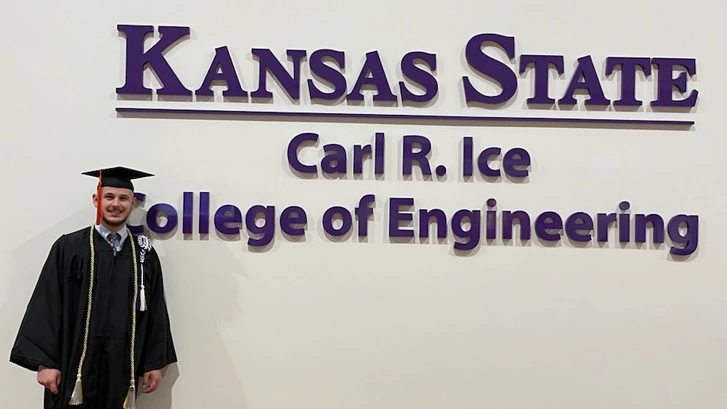Valuable Lessons as an Early Career Chemical Engineer
Meet Mark, see his advice for early career students on adjusting to a new city and lessons learned during his rotations in the North America Rotational Program.


As a recent chemical engineering graduate, what advice would you give to early career students who are interested in pursuing a technical role in the chemical engineering field? How can they make the most of their experiences and learn as much as possible?
Being willing to admit that you don’t know something or don’t understand something can be hard, but it’s important. I would not be able to fully perform my job if I didn’t ask the proper questions. If I am attempting to solve a problem that I have just learned about, it is important for me to talk to the people that must deal with this problem every day in the field.
Everyone has insights and ideas that are potentially beneficial. Asking people what they think or to reexplain can save a lot of headaches down the road. Going to people to ask questions that have direct knowledge is a great way to improve trust and buy-in from people who otherwise might not be involved.
Your first rotation in the North America Rotational Program was in Mapleton Illinois and now you are in your second rotation at Blair, Nebraska. Given that you are from Kansas, what advice would you offer to other early career professionals adjusting to a new city and work environment?
Trying new events, hobbies, and experiences whether by yourself or with others was a great way for me to adjust. One of the hardest things for me to get used to was living alone. Throughout college, I lived with roommates that allowed for the easy planning of events. Living alone was an adjustment to the fact that if I wanted to do something, I needed to be the sole planner and doer. Putting myself in a position to meet new people and make new friends was a difficult thing to get over.
To accomplish it, I did anything from something as simple as trying the restaurant across the street to driving to Chicago or Milwaukee for baseball games. The new work environment was a much easier adjustment as everyone in Mapleton was easy to work with and provided a ton of help to me as a new engineer and I have experienced the same support during my time at Blair Nebraska.
What are some of the most valuable lessons you have learned during your time at Evonik as someone that is just starting their career?
The most valuable lessons I have learned at Evonik are the importance of actively communicating with the affected personnel and seeking out answers from multiple points of view. When communication is clear, consistent, and concise, it makes it easier for people to buy in and contribute to a more productive solution, while also setting proper expectations of what is to come and allowing people to see progress being made throughout the process.
To fully understand and improve an issue, communicate with all involved parties, including operations, vendors, and safety, and ensure knowledgeable individuals attend meetings to keep them concise and productive. Consistently applying and improving these practices is crucial to avoid losing focus on critical aspects.
Job title North America Rotational Engineer
Based Blair, Nebraska, USA
Division/Function Nutrition & Care
Joined Evonik 2023
Education B.S. Chemical Engineering
